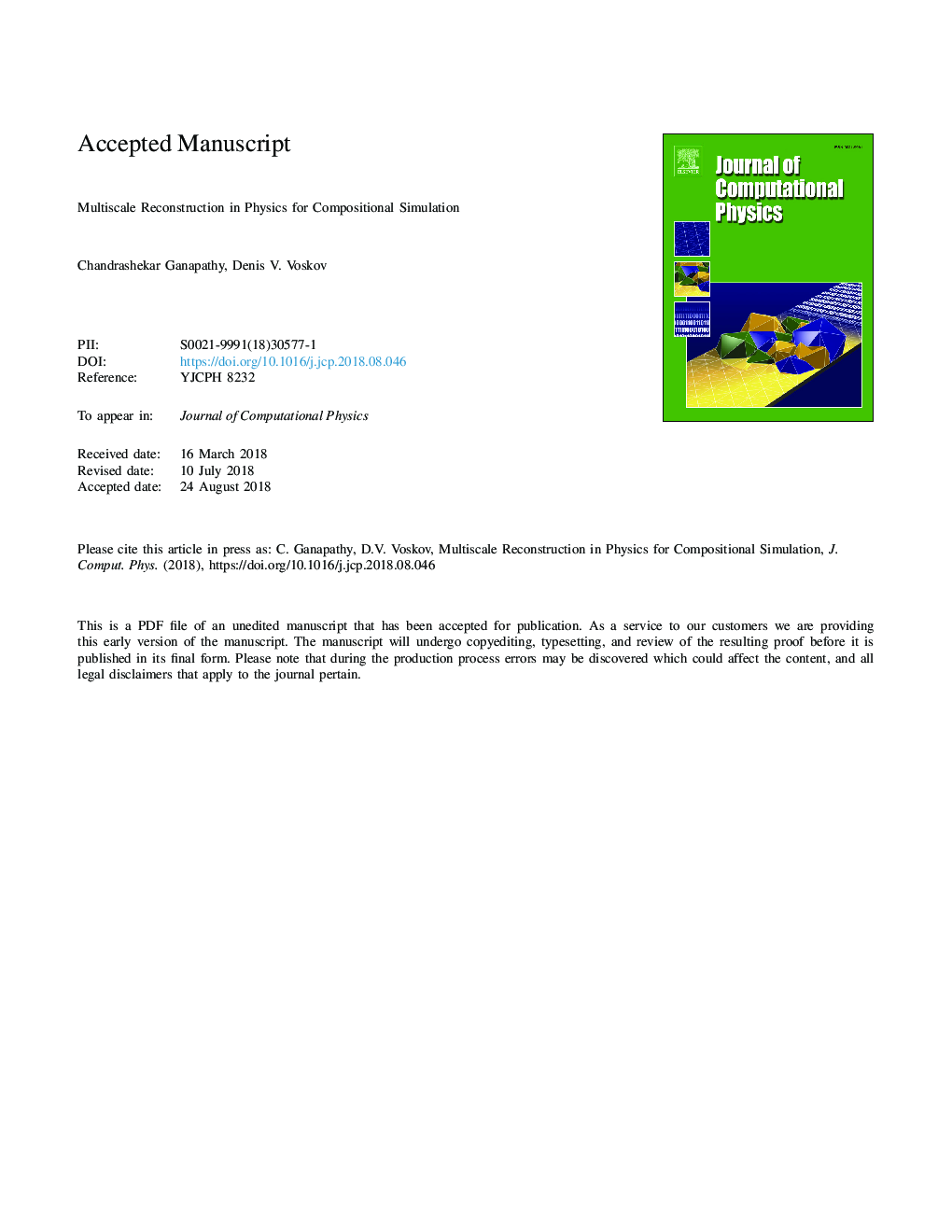| Article ID | Journal | Published Year | Pages | File Type |
|---|---|---|---|---|
| 10139569 | Journal of Computational Physics | 2018 | 21 Pages |
Abstract
A compositional formulation is a reliable option for understanding the complex subsurface processes and the associated physical changes. However, this type of model has a great computational cost, since the number of equations that needs to be solved in each grid block increases proportionally with the number of components employed. To address this issue, we herewith propose a multiscale reconstruction in physics for compositional simulation. The ideology consists of two stages, wherein two different sets of restriction and prolongation operators are defined based on the dynamics of compositional transport. In the first stage, an operator restricting the arbitrary number of components to only two equations for flow and transport is implemented with the objective of accurately reconstructing the multiphase boundaries in space. The prediction of multiphase front propagation is the most critical aspect of the approach, as they involve a lot of uncertainties. Once the position of two-phase boundaries is identified, the full conservative solution in the single-phase region can be accurately reconstructed based on the prolongation interpolation operator. Subsequently, in the second stage, the solution for the multicomponent problem (full system) in the two-phase region is reconstructed by solving just two transport equations with the aid of restriction operator defined based on an invariant thermodynamic path. The proposed reconstruction strategy results in coarsening of the compositional problem in terms of the physical representation (number of equations), thereby appreciably reducing the simulation time by several folds without significant loss in the accuracy. We demonstrate the applicability of the proposed multiscale strategy for several challenging gas injection problems.
Related Topics
Physical Sciences and Engineering
Computer Science
Computer Science Applications
Authors
Chandrashekar Ganapathy, Denis Voskov,
